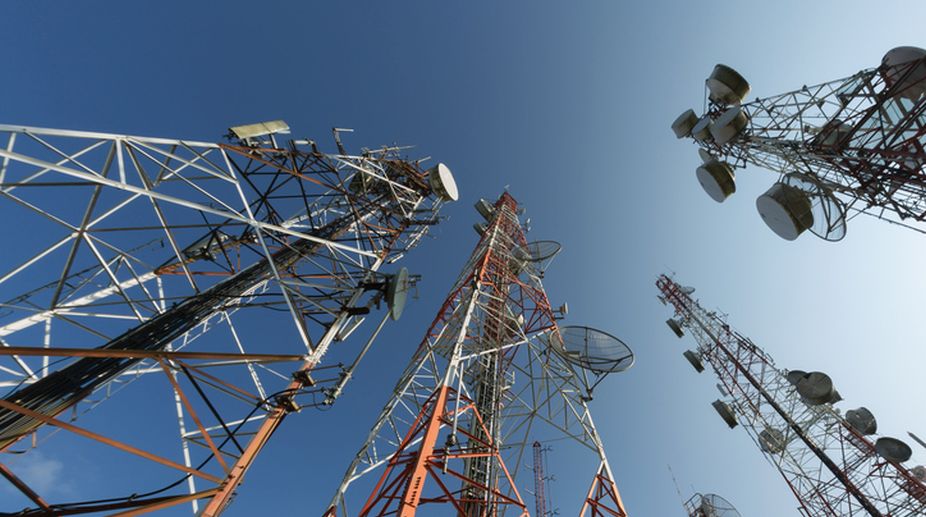Govt formulating critical minerals policy, exploring pact with US
The Central government is working towards formulating a holistic policy for critical minerals, and has sought inputs from stakeholders on…

(Photo: Getty Images)
Concern over low interconnection usage charges, high spectrum usage fee and doing away with Universal Service Obligation Fund were the main issues that telecom operators highlighted to the inter-ministerial group (IMG) on Friday.
"We have presented the current state of industry, which has reported a loss of H2 (second half of year) versus H1 (first half) of 10 per cent revenue," a representative of Idea Cellular said on condition of anonymity after meeting IMG officials.
Officials from four telecom companies — Bharti Airtel, Vodafone India, Idea Cellular and Telenor — met the group on Friday and said that the steps being urged would help improve their balance sheets.
Advertisement
The task of the IMG is to examine systemic issues affecting viability and repayment capacity in the telecom sector and furnish recommendations for resolution of stressed assets. It is expected to submit its recommendations within three months. The group, comprising official from the finance and telecom ministries, was set up after concerns about the financial stress in the industry.
The Idea official also said they were in agreement that data prices needed to come down. Talking of interconnection charges, the official said that if an operator charges zero tariff for voice calls, it would become unsustainable in the long run, because an operator has to pay out without getting revenue.
He was alluding, without naming the operator, to Reliance Jio's move to give free voice and data offer to subscribers. The official said that interconnection charges in all large economies were multiple times that of India. In China, the charges were 40 paise per minute while in Indonesia and Brazil, they were 10 to 15 times higher than India's which was 14 paise.
He said such charges were critical for the survival of telecom operators and a detailed presentation was made to the group during their meeting.
Stating that the telecom industry's revenue had declined to Rs 1.89 lakh crore in 2016-17 from Rs 1.93 lakh crore in the previous year, the official said that if the fourth quarter figures were extrapolated, revenue in the current fiscal year would decline by eight per cent.
Further, to keep the momentum, new investment in spectrum, broadband sites and 4G on pan-India basis was required.
A Vodafone India official, while expressing confidence in the government's ability to tackle the situation, said: "In 1999, the government took calibrated measures to make telecom the poster boy of Indian reforms aimed at bringing about the lowest tariffs in the world."
He said the main thing right now was whether the telecom sector was being viewed only as "a revenue generator or do we also view it as a larger economic enabler".
The official also said that Vodafone had brought in one of the largest foreign direct investments to the country. "In the last two years alone, we got Rs 55,000 crore of equity, including Rs 48,000 crore last year which is by far the largest across any investor and any sector," he said.
He, too, felt that interconnection charges of 14 paise at present were "way too low". Any further lowering, he said, would have huge implications on expansion of telecom coverage because "normally it is the urban people calling the rural ones because of prosperity-poverty divide".
Vodafone India said the spectrum usage charges which operators have to pay should be reduced from the present five per cent of adjusted gross revenues to 1 per cent, in keeping with the recommendations made by the Telecom Regulatory Authority of India (TRAI) in 2013. Again, as suggested by TRAI, the money to be paid into the Universal Service Obligation Fund (USOF) should be brought down to 3 per cent from 5 per cent, before phasing it out. The USOF is used by the government to expand rural connectivity.
"Licence fee should be subsumed in Goods and Services Tax, just like excise is included in manufacturing, which will give relief to the telecom sector," the Vodafone official said.
Bharti Airtel told the group that the interconnection rate was actually lower than cost. "In order to make this financially viable, it is critical that traffic between operators is symmetrical," it said.
"To prevent abuse of below-cost termination (or interconnection) charges, it is recommended that the present charge should be corrected and fixed at full cost incurred by the terminating operator. Further, TRAI should be restrained from any reduction till the matter is finally adjudicated in court as it would cause an irreparable financial loss to Airtel and other similarly placed operators," it added.
IMG officials were not available for comment.
Advertisement